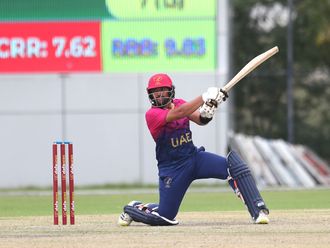London: England’s leading clubs are determined to challenge the financial rewards on offer in French rugby in a bid to prevent a post-2015 World Cup player drain.
Rugby Football Union chief executive Ian Ritchie has highlighted the importance of making it commercially feasible for members of Stuart Lancaster’s squad to reject an approach from the Top 14.
It is current RFU policy to only select those playing at non-English clubs in exceptional circumstances, a position Ritchie views as “fundamental” to retain control of England internationals.
So far the stance has succeeded but with the financial rewards in French club rugby at an unprecedented high due to the increased revenue from a new TV rights deal, it is feared there may be an exodus after next year’s World Cup.
But Ritchie believes playing for a Premiership club and England should be financially competitive, if not superior to the prize for competing elsewhere.
“We should not be behind in making it economically right for people to continue to play in this country,” he said.
“I don’t like a scenario where someone says ‘I can get blank when I go overseas’. We should be able to match all of that over here.
“We should be absolutely at the top of the pile here. We should help to try and achieve that and we should be unashamed of that.”
Premiership clubs operate under a salary cap that increases to £5 million (Dh30.7 million) next season, while England players benefit from a match fee of £15,000.
The current agreement between the RFU and Premiership Rugby, who represent the 12 top flight clubs, over player release is due to expire in June 2016.
Negotiations are to begin soon with Ritchie hinting at a collaborative approach to convincing England players to remain at home.
“The Premiership salary cap is not a matter for me, it is a matter for Premiership Rugby,” he said.
“Players get what they get from the club, from England, which is not an insignificant contribution, and then there’s the commercial stuff that he generates off the back of that.
“What we have to do is make that as attractive as possible.”
Ritchie played the critical role in brokering an agreement over establishing the successor to the European Cup, the European Champions Cup.
Some view the club-led governance of the new competition as representing a shift in the balance of power from unions to club, but Ritchie sees only a strong partnership.
“I want to see really successful club rugby and that applies across all levels,” he said.
“We want to see that and that means they need to be commercially successful.
“We shouldn’t be seen as being in competition with that, we should be seen as helping and assisting it.”







